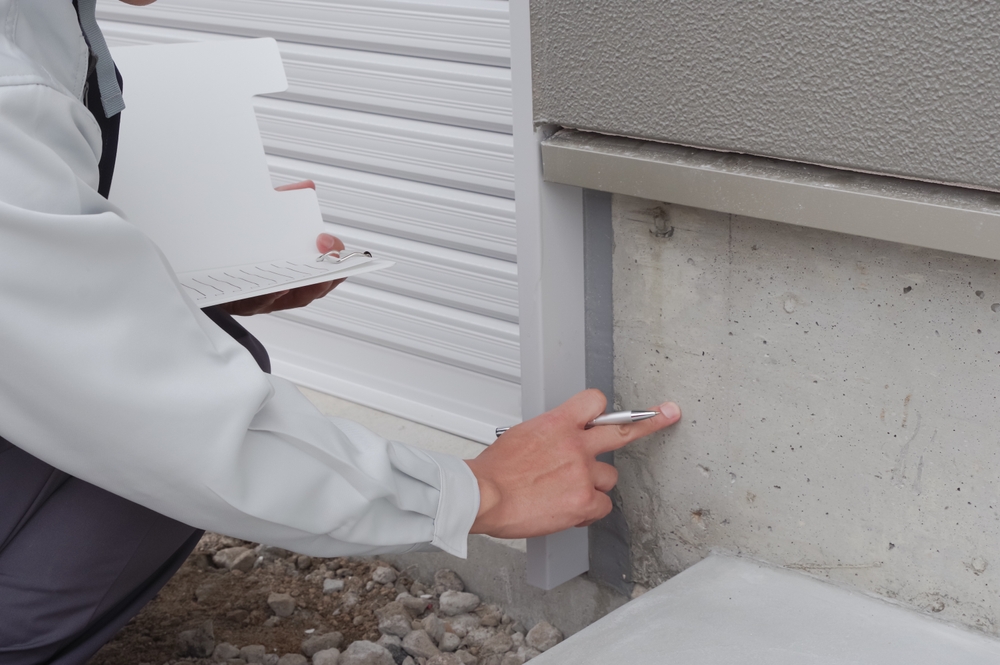Owning a home is a significant responsibility, and maintaining its structural integrity is a crucial aspect of that responsibility. One of the most critical components of a home is its foundation. The foundation supports the entire structure, and any issues with it can lead to serious problems down the line. Identifying foundation problems early can help prevent costly repairs and ensure the safety and stability of your home.
Signs of Foundation Problems
Noticing the early signs of foundation issues can save you a lot of time, money, and worry. Here are some signs to look out for:
- Cracks in Walls and Floors: One of the most common indicators of foundation problems is the presence of cracks in both your walls and floors. These cracks can appear in various forms, including horizontal, vertical, or stair-step cracks. While minor hairline cracks are often insignificant, larger cracks can indicate shifting or sinking of the foundation.
- Doors and Windows that Stick: If you have trouble opening or closing doors and windows, it might be a sign of a foundation issue. When a foundation shifts, it can cause frames to become misaligned, leading to doors and windows sticking or not latching properly.
- Uneven Floors: Walking through your house can sometimes reveal uneven flooring or a noticeable slope. This can result from foundation settlement and may indicate the need for repairs.
- Gaps Around Windows and Doors: Gaps can form around your windows and doors if your foundation begins to fail. This can be seen as a visible separation between walls and the frames of your doors and windows.
- Separating or Cracked Molding: The molding on your wall might start to separate or crack as the foundation settles. This usually occurs when there is a significant shift in the foundation, affecting the attached structures.
- Sinking or Settling: A more noticeable sign of foundation issues is when part of your house seems to sink or settle more than the rest. This can lead to uneven surfaces and may cause significant structural damage over time.
- Rotting Wood: If your home is on a crawl space, check for moisture-related causes like rotting wood. This can signify excessive moisture due to foundation issues causing increased humidity under the home.
Common Causes of Foundation Problems
Understanding the causes of foundation problems can be invaluable for prevention. Here are some common reasons why foundations can become compromised:
- Poor Drainage: Water is a major enemy of foundations. Poor drainage can cause water to pool around your home’s base, leading to erosion or expansion of the soil, which can, in turn, cause the foundation to shift.
- Soil Type: Certain soil types, such as clay, expand and contract significantly with moisture changes. This expansion and contraction can exert vertical stresses on the foundation, potentially leading to its failure.
- Climate and Seasonal Changes: Areas with significant seasonal weather changes may experience freezing and thawing cycles, affecting the soil’s density and expanding soil around a foundation.
- Poor Foundation Construction: If a foundation was not properly constructed or reinforced, it could fail prematurely. This emphasizes the importance of choosing skilled professionals for your home construction.
- Trees and Vegetation: Large trees close to your house can cause foundation issues as roots grow and apply pressure to the foundation or alter the soil’s moisture content.
Steps to Take When You Suspect Foundation Problems
If you recognize any of the above signs or suspect your foundation might be in trouble, follow these steps to address the issue:
- Conduct a Thorough Inspection: Walk through and around your home to examine potential signs of foundation damage. Take note of all the visible problems, such as cracks, misaligned doors or windows, and any new ones that may not have been mentioned earlier.
- Consult with a Professional: Contact a reputable foundation repair company to assess the condition of your foundation. Professionals have the expertise and equipment needed to measure and diagnose foundation problems accurately.
- Get a Structural Engineer’s Opinion: Hiring a structural engineer is a wise decision. They provide an unbiased assessment and can often offer a more scientific analysis of foundation problems and their causes.
- Request Multiple Estimates: Once you’ve identified the problem, seek multiple quotes from different repair companies. This helps to ensure a competitive price and varied opinions on how the repairs should be executed.
- Understand Your Repair Options: Various repair methods exist, ranging from simple cosmetic fixes to more comprehensive solutions like underpinning or installing piers. Professional recommendations can guide you to the best solution for your condition.
- Plan for Repairs: Once you’ve chosen a repair method, plan the logistics, budgeting, and timeline for the repair work. While foundation repairs can be costly, addressing the issue sooner rather than later often prevents more extensive damage and higher costs.
Preventive Measures
After repairs, or better yet, before any problems occur, consider taking preventive steps to protect your foundation from future issues:
- Manage Moisture Levels: Ensure your home has good drainage systems in place. Use gutters and downspouts to direct rainwater away from the house foundation, and install French drains if necessary.
- Adjust the Land Grading: Make sure the land around your house slopes away from the foundation. This reduces the amount of water that can pool next to your foundation during heavy rains.
- Control Vegetation: Keep trees and large shrubs away from your home’s foundation. If they are already present, consider root barriers to mitigate the stress roots might exert on your home.
- Install a Moisture Barrier: Vapor barriers can prevent excess moisture from reaching a crawl space’s wooden components, reducing the chances of rot and increasing the longevity of the foundation.
- Regular Inspections: Conduct regular inspections of your home’s interior and exterior structures, especially after extreme weather conditions, to catch new issues promptly.
Foundation problems can feel overwhelming, but with timely attention and action, you can protect your home from serious damage. Recognizing and acting on early signs is key, as is understanding the causes and solutions available for foundation repair. Engage professional help whenever necessary and make preventive maintenance a part of your home care regimen. Remember, a solid foundation not only supports your home but also gives peace of mind to those living within it.



